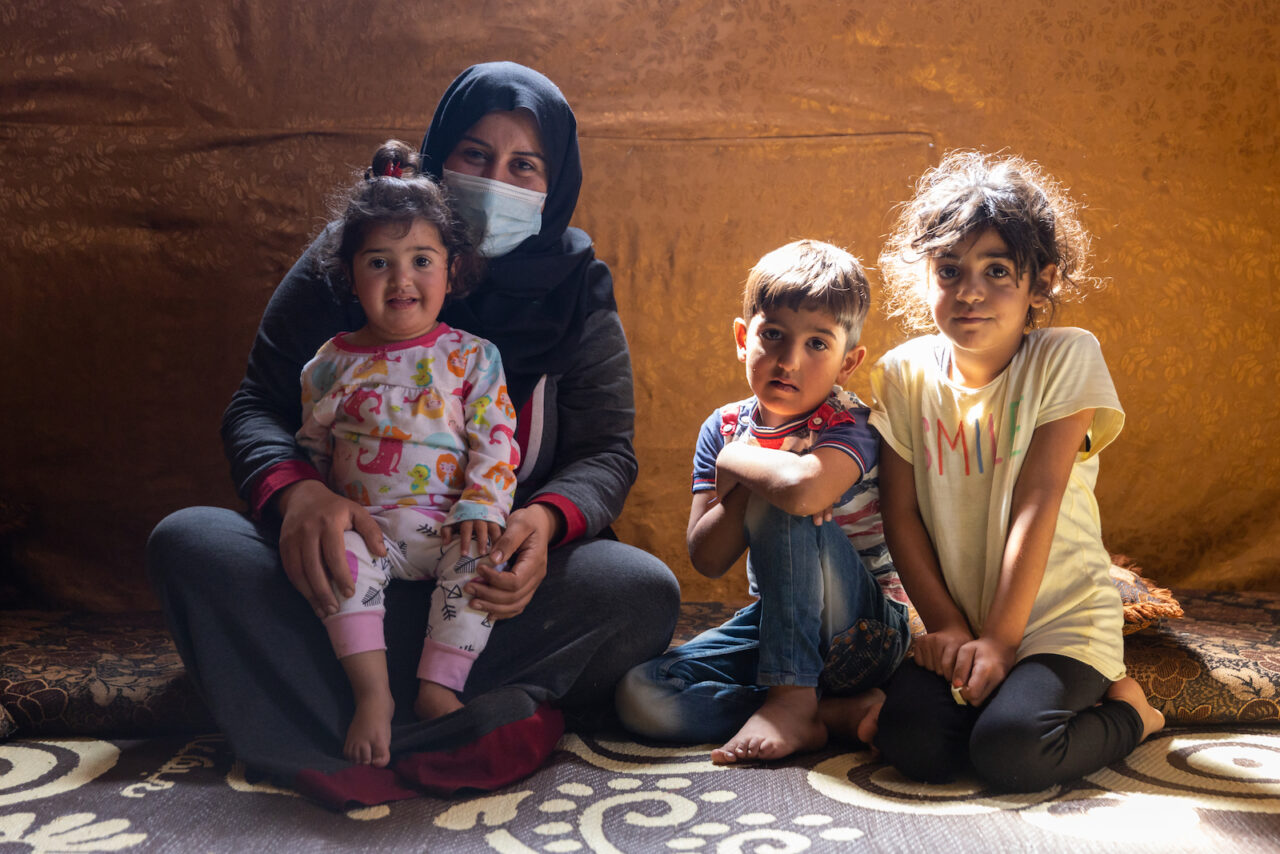As the world focuses on the Ukraine crisis, we must not forget Syria as it enters eleven years of conflict
Media Contact :
March 16, 2022
Senior Public Relations Manager
[email protected]
m 404-735-0871
Media Contact :
March 16, 2022
Senior Public Relations Manager
[email protected]
m 404-735-0871

AMMAN (March 15, 2022) —As the crisis in Ukraine unfolds and the world’s eyes are on the plight of refugees from that context, less attention is being given to the lives of Syrian children, as the war that has devastated a nation moves into its eleventh year.
“Syria remains the country with the largest number of internally displaced people; 6.7 million. On top of this, 6.8 million people who have fled the country and are now refugees. They must not be forgotten as new crises arise. We are still facing a protection crisis with unfathomable consequences for Syrian children, and we must also prioritize their needs,” said Johan Mooij, World Vision’s Syria response director.
“Humanitarian needs in Syria have increased by a staggering 29 percent since 2020 as a result of ongoing conflict, displacement and the socio-economic impacts of the COVID-19 crisis,” he continued. “Lebanon, a country that hosts 1.5 million refugees is experiencing an economic crisis, and now the Ukraine conflict is likely to have further impact. Lebanon depends on Ukraine for 90 percent of its wheat, so there is a severe increased risk of hunger for the most vulnerable in Lebanon, including Syrian refugees.”
Syria is one of the most dangerous places in the world to be a child. An estimated 55,000 have been killed and thousands have suffered grave violation of their rights, including recruitment into armed groups. As families struggle to survive, children are increasingly exposed to the risk of being forced into early marriage and dangerous labor.
“Whilst we fully support the aid and attention given to people impacted by the crisis in Ukraine, we are worried that increased need in other parts of the world could divert much needed funds from other crisis situations, like Syria,” Mooij said. “Now is not the time to slow or stop our support for millions of Syrian families, many of whom do not have the means to support themselves.
We also call on the international community to continue to prioritize achieving a sustainable peace in Syria, he continued. “We must collectively push for a lasting political solution and ensure lives are spared, and children are given the chance of a future. Global diplomatic bandwidth must be expanded to address the situation in Syria, as the UN mandated aid border crossings is due for renewal in July and routinely under threat of being closed due to diplomatic wrangling at the UN Security Council. Failure to renew UN mandated aid border crossings could cause a humanitarian catastrophe, including hunger, due to 3.4 million people being dependent on the last aid border crossing point as a vital lifeline for humanitarian assistance.”
Last year a World Vision report revealed that the economic cost of a decade of conflict in Syria is estimated to be over $1.2 trillion and, even if the war ended then, its cost would continue to accumulate to the sum of an additional $1.7 trillion in today’s money through until 2035. One year on, World Vision is gravely concerned of the growing human costs of this war.
“As the world rightly reaches out to support refugees fleeing Ukraine we urge those who have the political power to also prioritize Syrian children,” Mooij said. “Boys and girls aged five or six can name every type of bomb by its sound, but sometimes can barely write their name, having missed out on the chance of an education. We cannot let them remain trapped in this cycle of violence. They have experienced war and displacement for eleven years now, and they too deserve safety, protection and access to education, so that they too experience the same opportunities in life that every child deserves, regardless of where they come from.”
About World Vision:
World Vision is a Christian humanitarian organization conducting relief, development, and advocacy activities in its work with children, families, and their communities in nearly 100 countries to help them reach their full potential by tackling the causes of poverty and injustice. World Vision serves all people regardless of religion, race, ethnicity, or gender. For more information, please visit www.WorldVision.org/media-center/ or on Twitter @WorldVisionUSA.